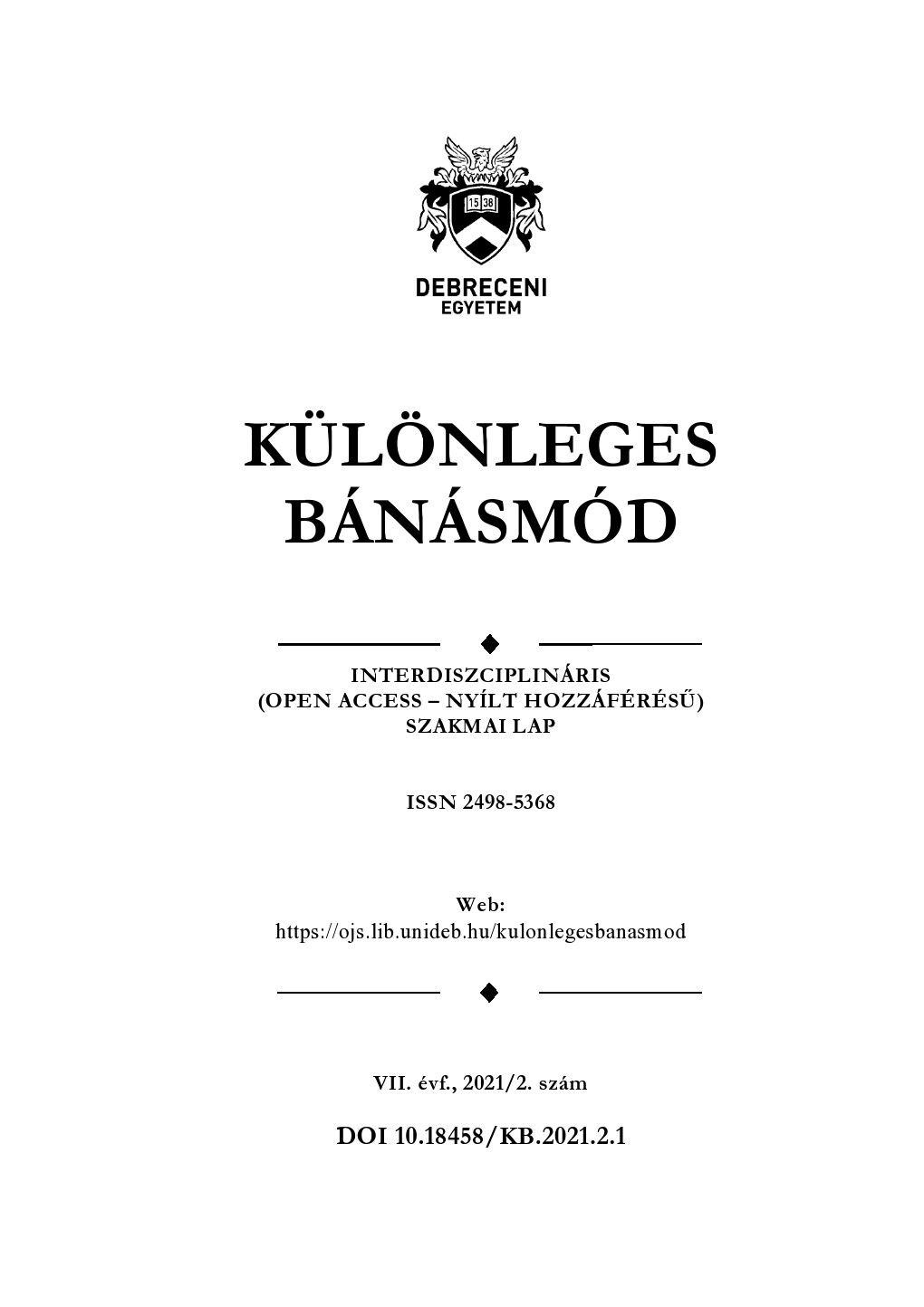ACADEMIC ACHIEVEMENT OF HIGHER EDUCATIONAL STUDENTS IN THE LIGHT OF TALENT, HEALTH AND SOCIAL RELATIONSHIPS
Authors
View
Keywords
License
Copyright (c) 2021 Józsa Bianka, Kárándi Gergő Mihály, Motel Petra Bianka, Visnyei Lili

This work is licensed under a Creative Commons Attribution-NonCommercial-NoDerivatives 4.0 International License.
How To Cite
Abstract
Background and aim: Academic achievement is determined by several intra- and interpersonal factors. Talent is an internal factor whose role in academic progress is unquestionable (Dávid et al., 2014a; Mező, 2008; Ceglédi, 2008). Health awareness is also an internal factor that has a significant effect on academic achievement, considering the positive effect of regular physical activity and positive self-image, and body image within the latter (Kovács, 2020). Also, interpersonal and environmental factors need to be emphasized, as adequate social support can significantly improve performance and can also play a crucial role in disadvantage compensation (Szemerszki, 2015; Ceglédi 2012). However, deficits of these factors (of which exclusion is very severe, for example) have the opposite effect. In our research, we examined the role of self-assessed talent preferences, self-satisfaction, regular physical activity, and coping with exclusion among the students of the University of Debrecen (N=159). Results: Based on the results of the linear regression analysis, exclusion itself has a negative effect on academic achievement, but self-satisfaction and coping with exclusion show a positive effect. Our results draw attention to the importance of social relationships and prevention of exclusion, as it is clear that social exclusion has a long-term impact on self-esteem and higher academic achievement, and is stronger the earlier it appears.


 https://doi.org/10.18458/KB.2021.2.43
https://doi.org/10.18458/KB.2021.2.43